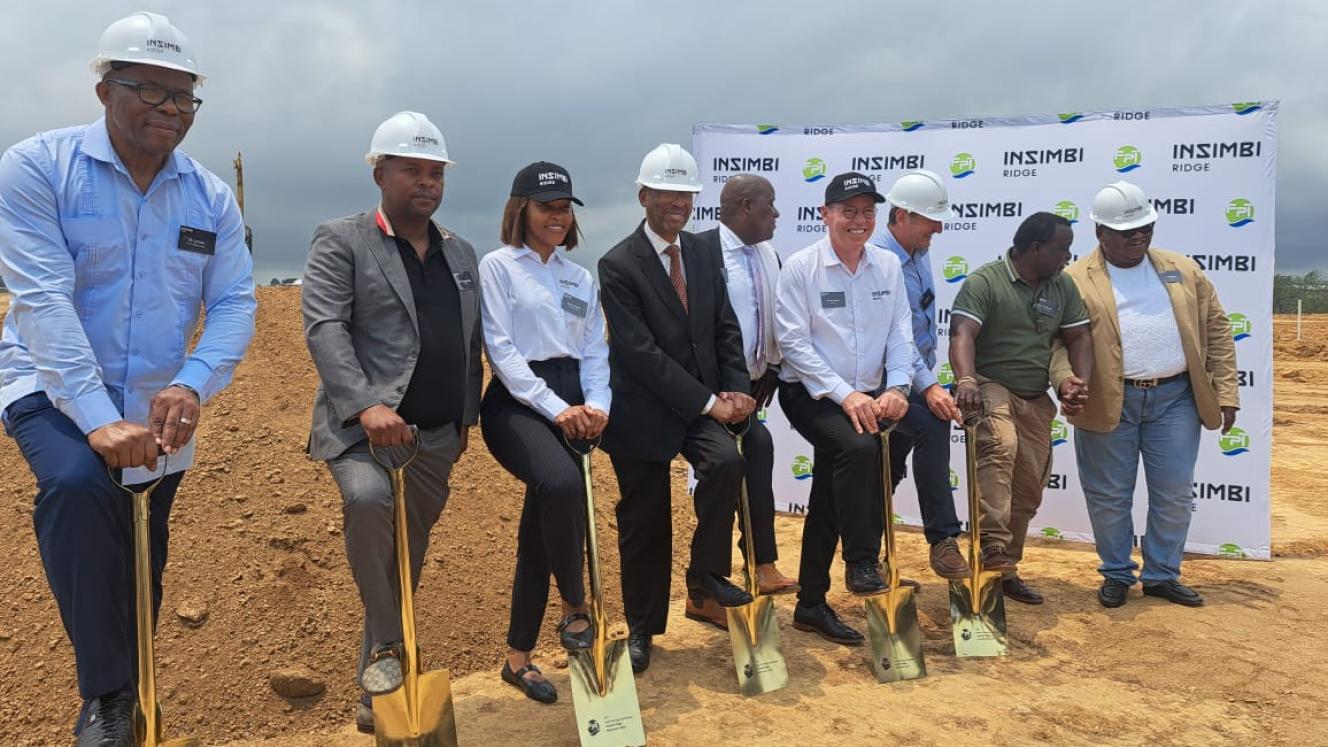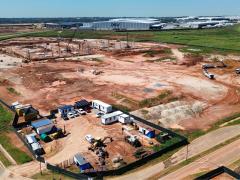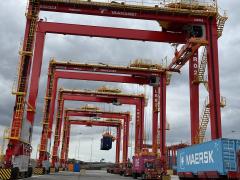South Africa’s drive to modernise its freight network gained momentum with the launch of the R20 billion Insimbi Ridge Logistics Precinct during a sod-turning ceremony at Cato Ridge in KwaZulu-Natal on Monday.
The new development, located 52 km from Durban Port, will boost inland staging and intermodal capacity, relieving pressure on the port and N3 corridor. It will connect directly to the N3 and to the national rail network via a planned 1.7 km private siding from Cato Ridge Station and will have two truck-staging areas.
According to the developers, Assore SA PropCo, a wholly owned subsidiary of Assore SA (Pty) Ltd and the Rail Development Corporation (RDC), the logistics precinct is the country’s first large-scale, privately funded inter-modal freight-corridor development. It has been designated as a provincial and municipal catalytic project and is expected to commence operations in 2027.
“Insimbi Ridge is evidence that South African business is still prepared to invest in long-term infrastructure when governance and policy conditions are right,” said Tiaan van Aswegen, Deputy CEO of Assore SA.
“It proves that partnerships between government and disciplined private capital can deliver structural reform without burdening the fiscus.”
RDC Director Sibusisiwe Nodada described the project as “rail reform made real”.
“Insimbi Ridge links port, rail, and road in one controlled node. It presents a blueprint of how private operators can strengthen national logistics capacity,” said Nodada.
Phase 1 will involve the R1bn development of approximately 33 000 sqm of logistics and industrial facilities within the initial 351-hectare conversion zone.
Private port terminal operator FPT Group (FPT) – the operating division of The Logistics Group (TLG) – which, according to its website, handles more than five million tonnes of cargo through its port infrastructure in the ports of Cape Town, Durban and Gqeberha, is the anchor tenant for the initial phase. The breaking of ground this week marked the start of construction on the FPT cold store and warehouse.
TLG CEO Anton Potgieter said the project demonstrated what the next era of logistics could look like “when private commitment meets public purpose”.
“Insimbi Ridge is proof that confidence still builds things – that when investors believe in policy, places like this become the proof-points the economy has been waiting for.”
Potgieter emphasised the precinct’s strategic role in easing pressure on Durban Port and the importance of the new cold storage facility to support citrus growers.
“We see this as the perfect hub to decongest Durban Port, to add efficiencies. South Africa produces the second most citrus exports in the world, and the trees are already in the ground for another 15% to 20% growth beyond here. Currently, there are more than 200 000 people that depend on that citrus all over the world. So this is investment for those 200 000 people, plus into the local economy,” Potgieter said.
KZN MEC for Economic Development, Tourism and Environmental Affairs, Musa Zondi, hailed the project as “a shining example of what becomes possible when government and business move in partnership to unlock our province’s full economic potential”.
“Over its lifespan, the Insimbi Ridge Precinct will attract billions in private capital and create up to 10 000 jobs across construction, logistics, and manufacturing. Importantly, the project prioritises local labour and small business participation, ensuring that communities in the KwaXimba Traditional Council directly benefit from this development.
“Every container that moves more efficiently through this corridor is not just cargo, but it is confidence. It is trust regained in KwaZulu-Natal’s capacity to deliver,” Zondi said.
The wider 3.5 million sqm precinct has been master-planned to attract additional anchor tenants across manufacturing, distribution and intermodal freight operations over the next two decades.
As the first provincially designated freight node under Strategic Integrated Project 2 – the logistics and industrial corridor between Durban, Free State, and Gauteng – the developers believe it provides a replicable model for private participation in national logistics infrastructure.
The precinct covers 500 hectares of developable land with the approved Phase 1 of 351 hectares within a 2 080-hectare holding owned by Assore SA PropCo. The wider development is expected to be built over 20 to 25 years.
Environmental Authorisation, Water Use Licence, and Offset Plan approvals are already in place for Phase 1.
The project directly supports Transnet National Ports Authority’s R90 billion Port of Durban expansion, the National Freight Logistics Roadmap and the KZN Investment Strategy 2030.













